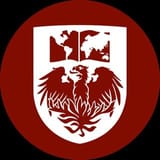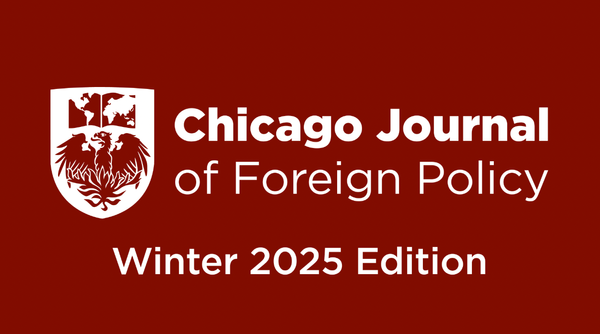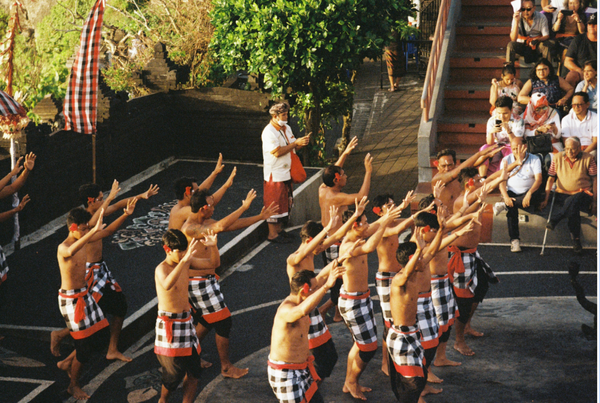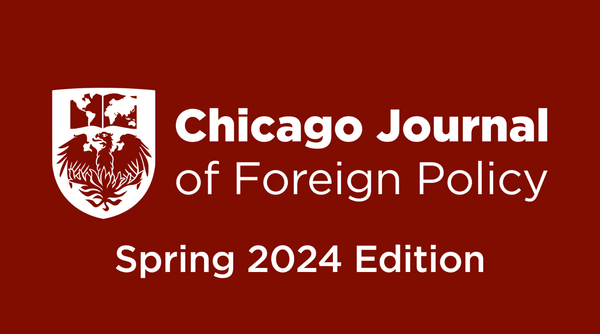Is Paul Kagame’s Rwanda on the Brink of Authoritarianism?
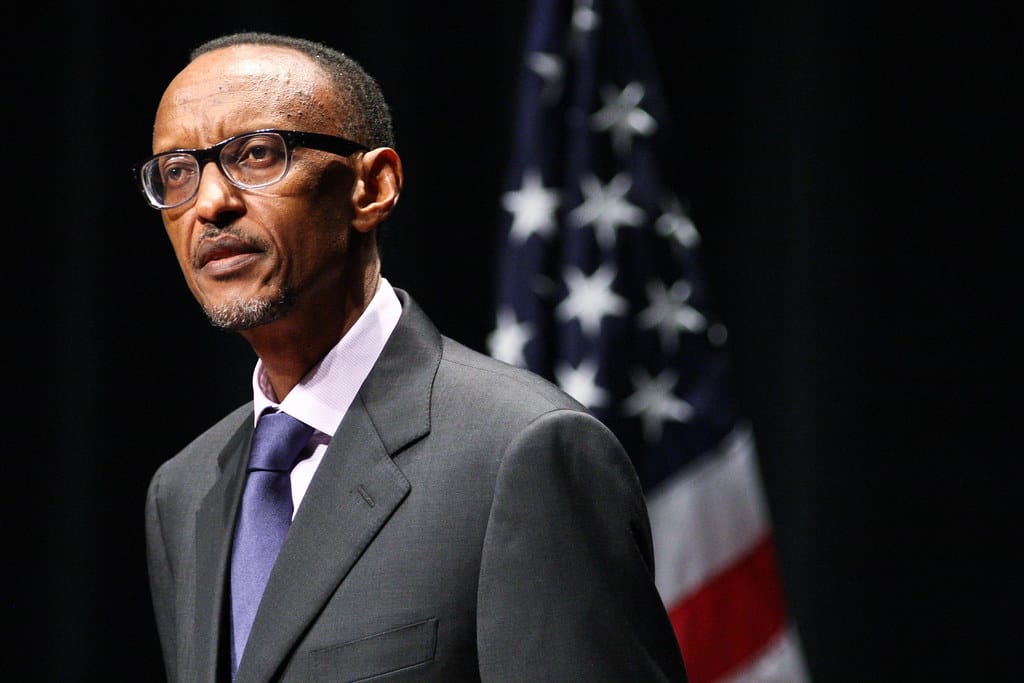
By Tom Smee, University of Chicago
Arsenal Football Club, one of the world’s biggest sports teams, has retained the same jersey sponsor since 2018: “Visit Rwanda”. This unique sponsorship is symbolic of Rwanda’s decades-long push to rapidly grow the economy through tourism and other non-resource-intensive sectors, especially in the wake of the 1994 genocide, in which more than one million Rwandans were systematically killed over three months, fueled by ethnic hatred towards the minority Tutsis from the majority Hutus.
In 2024, the International Monetary Fund (IMF) listed Rwanda as the sixth fastest-growing economy in the world, as well as the fourth highest African country.1 Nine African countries are featured in the top twenty, a reality that contradicts the perception of struggling economies on the continent. Rwanda is an example of a growing divide in Sub-Saharan nations: those that are heavily reliant on oil exports and other region-specific resources (such as Angola and Nigeria) are struggling to grow their economies at the same rate as nations that have expanded their economies into services and tourism, like Rwanda.2 This desire to diversify economically is a global trend (see Saudi Arabia’s Vision 2030), but it’s worth contextualizing these growing African economies within their own continent. The IMF notes that African countries with stronger governance tend to stabilize more quickly after economic shocks. These countries tend to be the same ones that have diversified their economies, as weaker governments remain over-reliant on their staple commodity.3 Rwanda is one example of a nation with strong governance, as it has been led by the same political party and the same president for thirty years. These two positive trends (diversified economies and strong governance) have propelled Rwanda into a globally recognized status for its economic improvements. This feat is especially remarkable in the context of the atrocities committed in the genocide just 30 years ago.
However, the “strong governance” enabling Rwanda’s turnaround is less an institution than it is a name: Paul Kagame. President Kagame and his political party, the Rwandan Patriotic Front (RPF), have been in power since the genocide, winning the two most recent elections with 99% of the vote on both occasions.4 Many have leveled claims of authoritarianism and dictatorial tendencies at Kagame. He has clamped down on a free press, dismantled true political participation, and amended the Constitution to allow his term to extend until 2035. The Bertelsmann Transformation Index (BTI), a measure of the development status and governance of political and economic transformation processes in developing countries around the world, consistently scores Rwanda low on its measures of political institutions, such as the rule of law, separation of powers, and freedom of expression.5 Kagame regularly prevents opposition leaders from running against him.6 The nation’s civil rights rating, determined by whether a nation codifies, protects, and respects its citizen’s civil rights, has dropped from a five out of ten in 2006 to a three out of ten in 2022.7
Even more concerningly, Human Rights Watch published a report in October of this year condemning Rwanda’s history of torturing prisoners and political dissidents:
“They threw me in the water and beat me. When you’re wet, you feel the pain from the sticks even more… the deputy director had a stick and an electric cable… he’s the one who hit me,” a former prisoner of Rubavu prison told Human Rights Watch in July 2024. The prison’s deputy director he refers to was acquitted of murder, torture, and assault after a landmark trial of prison officials and prisoners that concluded earlier the same year.8
The report demanded that Kagame’s RPF should “fulfill its obligations under international human rights law” by immediately ending any conduct of torture practices.
Furthermore, despite the positivity surrounding Rwanda’s economic growth, the country faces the prospect of leaving behind its poorest citizens. The World Population Review ranks Rwanda 31st out of 177 countries for its Gini Coefficient—a measure of income inequality where zero would be perfect equality and one the opposite.9 This doesn’t contradict Rwanda’s positive economic growth. In fact, well-developed countries often have higher Gini Coefficients than slower-developing countries with less economic growth. However, it does indicate that not all Rwandans are benefitting from the nation’s economic growth, especially if agricultural policies are taking a backseat to tourism incentives (like soccer jersey sponsors) that mainly benefit urban areas.
Indeed, Rwanda’s welfare programs are rated at a five out of ten by the BTI. Positive notes include mandatory health care and the Girinka, or “one cow per family” program, but COVID-19 highlighted that welfare was most heavily concentrated in the capital city, Kigali, and the surrounding urban areas.10
Kagame has effectively orchestrated a total erosion of democratic principles in the Rwandan political system while simultaneously failing to stop an increase in income inequality nationally. Yet he remains popular amongst both Rwandans (surveys are to be taken lightly, but there seems at least a consensus of general acquiescence) and leaders of Western nations.
One way Kagame has navigated this contradiction is by portraying himself as the officer who helped end the genocide. He has justified clamping down on the freedom of the press by pointing to the role of the radio in incurring ethnic hatred in the leadup to the massacres.11 Kagame has used the blurred lines between the judiciary system and the presidency to ban any references to ethnic background—specifically, Hutus and Tutsis—in hopes of guaranteeing new generations of Rwandans a future free from ethnic violence.12 Unfortunately, ethnic divisions are still prevalent along socioeconomic lines: the minority Tutsis hold the majority of political positions and are concentrated in thriving, urban areas, while the Hutu majority is regularly denied political contestation (again, justified by Kagame through their actions in the genocide) and make up much of the country’s poorer agricultural demographic.13
Indeed, Kagame’s popularity with the West is in part fueled by the guilt of United Nations leaders over failing to prevent the genocide from occurring.14 Kagame has mastered the ability to guilt trip his Western allies, frequently referring to colonial atrocities and the inequality accruing in their own nations.15 This strategy has contributed to securing Western financing for 7-% of Rwanda’s national budget.16 This tactic has been regularly used by authoritarian leaders of developing countries in hopes of uniting their citizens towards a common enemy away from their own government. Only recently have Western nations begun to take stronger stances against Kagame’s authoritarianism, evidenced by the United Kingdom’s Supreme Court decision to revoke the plan to send asylum seekers to Rwanda, citing the contradiction in sending those fleeing dictatorships to an alternate one.17
Rwanda has undoubtedly benefitted from Kagame’s reign since the genocide. Navigating out of a disaster during which one million Rwandans were killed over a 100-day period cannot be underestimated.18 Thus far, Kagame has not seemed to be prioritizing his own power over the future and reconciliation of his country in the manner of history’s most dangerous dictators. His measures have been harsh but often justifiable, at least in the eyes of his people.
The concern lies in what the future may hold for Kagame’s Rwanda. Should anything happen to him, the lack of a potential successor is concerning. The erosion of democratic institutions or frameworks means a power vacuum could emerge in which a leader less inclined to preserve his nation’s prosperity could fill the gap. Moreover, James A. Robinson, Nobel Prize winner, and Leander Heldring make the argument that Kagame’s ability to stabilize the country post-genocide was driven by a unique system of social networks through which he galvanized the people.19 These networks, Robinson and Heldring propose, are the same that allowed for the genocide to occur in the first place.20 Thus, the democratic underpinnings that maintain nations’ stability and prevent dramatic actions from being taken on a national level are missing in Rwanda, replaced instead by collective action. This environment could be especially conducive for a new authoritarian figure.
Seemingly, Rwanda has the capacity to move quickly, whether it be in the right or wrong direction. Should a less benevolent and more power-hungry successor fill Kagame’s shoes, the country’s lack of democratic protections could spell disaster.
Notes
1. “9 Of the 20 Fastest-Growing Economies Worldwide in 2024 Will Be in Africa,” Carnegie Endowment for International Peace, May 6, 2024, https://carnegieendowment.org/carnegie-africa-program-newsletter/9-of-the-20-fastest-growing-economies-worldwide-in-2024-will-be-in-africa?lang=en.
2. “Growth in Sub-Saharan Africa Is Diverging,” IMF, November 14, 2024, https://www.imf.org/en/News/Articles/2024/11/14/cf-growth-in-sub-saharan-africa-is-diverging.
3. “Growth in Sub-Saharan Africa Is Diverging.”
4. Nosmot Gbadamosi, “Paul Kagame Isn’t Going Anywhere,” Foreign Policy, July 17, 2024, https://foreignpolicy.com/2024/07/17/paul-kagame-rwanda-election-authoritarianism-democracy/.
5. Bertelsmann Stiftung, “BTI 2024 Country Report — Rwanda,” report, Bertelsmann Stiftung, 2024, https://bti-project.org/fileadmin/api/content/en/downloads/reports/country_report_2024_RWA.pdf.
6. Victoire Ingabire Umuhoza, “Paul Kagame Banned Opponents Like Me From Rwanda’s Election. No Wonder He Cruised to Victory,” The Guardian, July 18, 2024, https://www.theguardian.com/commentisfree/article/2024/jul/18/paul-kagame-rwanda-election-president-democracy
7. Bertelsmann Stiftung, “BTI 2024 Country Report — Rwanda.”
8. Clémentine De Montjoye, “‘They Threw Me in the Water and Beat Me,’” Human Rights Watch, October 15, 2024, https://www.hrw.org/report/2024/10/15/they-threw-me-water-and-beat-me/need-accountability-torture-rwanda.
9. “Income Inequality by Country 2024,” 2024, https://worldpopulationreview.com/country-rankings/income-inequality-by-country.
10. Bertelsmann Stiftung, “BTI 2024 Country Report — Rwanda.”
11. “Rwanda,” RSF, October 7, 2024, https://rsf.org/en/country/rwanda.
12. Bertelsmann Stiftung, “BTI 2024 Country Report — Rwanda.”
13. Bertelsmann Stiftung, “BTI 2024 Country Report — Rwanda.”
14. “UNAMIR,” n.d., https://peacekeeping.un.org/mission/past/unamirS.htm.
15. AfricaNews, “7 Times Rwandan President Kagame Called Out the West’s Neocolonialism,” Africanews, February 9, 2021, https://www.africanews.com/2021/02/09/7-times-rwandan-president-kagame-called-out-the-west-s-neocolonialism/.
16. “World Bank Open Data,” World Bank Open Data, n.d., https://data.worldbank.org/indicator/DT.ODA.ODAT.XP.ZS?locations=RW.
17. Fatima Al-Kassab, “The U.K. Supreme Court Has Struck Down a Plan to Send Asylum-seekers to Rwanda,” NPR, November 15, 2023, https://www.npr.org/2023/11/15/1213147180/uk-supreme-court-rwanda-asylum-policy-sunak.
18. The Editors of Encyclopaedia Britannica, “Rwanda Genocide of 1994 | Summary, History, Date, Background, Deaths, & Facts,” Encyclopedia Britannica, October 25, 2024, https://www.britannica.com/event/Rwanda-genocide-of-1994.
19. Heldring, Leander & Robinson, James,”Problematizing state capacity: the Rwandan case,” Journal of Institutional Economics, 2023, 19, 1-25, 10.1017/S1744137423000012.
20. Heldring, Leander & Robinson, James,”Problematizing state capacity: the Rwandan case.”

